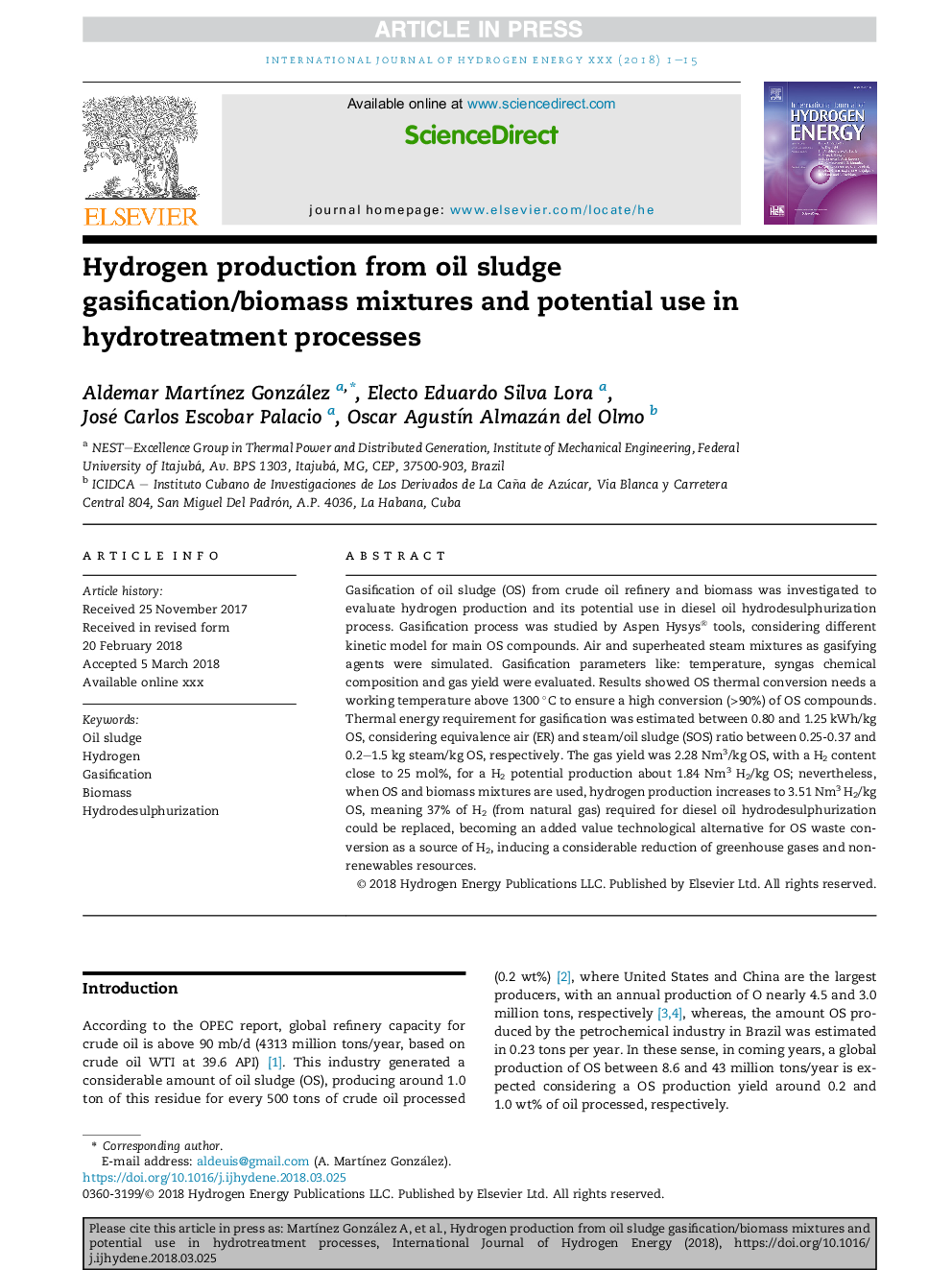| Article ID | Journal | Published Year | Pages | File Type |
|---|---|---|---|---|
| 7706365 | International Journal of Hydrogen Energy | 2018 | 15 Pages |
Abstract
Gasification of oil sludge (OS) from crude oil refinery and biomass was investigated to evaluate hydrogen production and its potential use in diesel oil hydrodesulphurization process. Gasification process was studied by Aspen Hysys® tools, considering different kinetic model for main OS compounds. Air and superheated steam mixtures as gasifying agents were simulated. Gasification parameters like: temperature, syngas chemical composition and gas yield were evaluated. Results showed OS thermal conversion needs a working temperature above 1300 °C to ensure a high conversion (>90%) of OS compounds. Thermal energy requirement for gasification was estimated between 0.80 and 1.25 kWh/kg OS, considering equivalence air (ER) and steam/oil sludge (SOS) ratio between 0.25-0.37 and 0.2-1.5 kg steam/kg OS, respectively. The gas yield was 2.28 Nm3/kg OS, with a H2 content close to 25 mol%, for a H2 potential production about 1.84 Nm3 H2/kg OS; nevertheless, when OS and biomass mixtures are used, hydrogen production increases to 3.51 Nm3 H2/kg OS, meaning 37% of H2 (from natural gas) required for diesel oil hydrodesulphurization could be replaced, becoming an added value technological alternative for OS waste conversion as a source of H2, inducing a considerable reduction of greenhouse gases and non-renewables resources.
Related Topics
Physical Sciences and Engineering
Chemistry
Electrochemistry
Authors
Aldemar MartÃnez González, Electo Eduardo Silva Lora, José Carlos Escobar Palacio, Oscar AgustÃn Almazán del Olmo,
